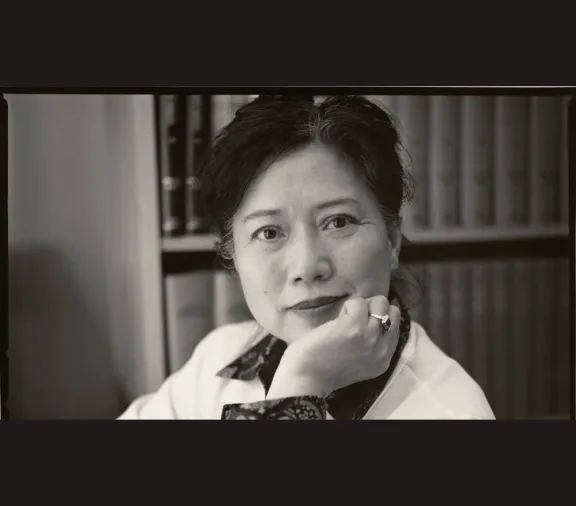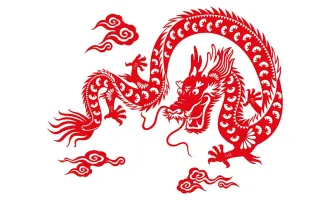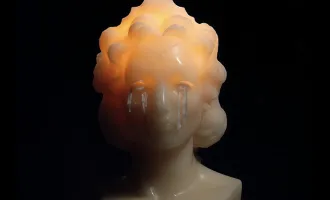
'The American Nurse' Book Highlights Nurses’ Role
The American Nurse tells stories of caring across the U.S.
If you have not yet gotten your hands on Carolyn Jones’ book, the American Nurse, nudge a family member to add it to the holiday gift list. This elegant coffee-table book boasts 75 biographies and photographic portraits of nurses from all corners of the United States.
Jones’ work is the product of a journey in which she aimed to capture the role nurses play in a myriad health care settings, from emergency rooms to hospices. She began in New York City and met with nurse advocates for homeless youth, made her way to Johns Hopkins in Baltimore, then visited prison nurses in Louisiana. She continued to Wyoming, where she began to understand the health needs of Native Americans.
While the faces and the geography vary, what remains constant among the nurses is a raw sense of knowing what it means to care for another human being, from the beginning to the end of life. “When they can no longer fix us, they make sure that we are comfortable, that our time leaving this Earth is as rich as it is entering,” Jones writes.
The author made a stop in the Bay Area, home of one of the nurses she featured, Jun Ting Liu of San Francisco General Hospital. I had the pleasure to sit down with Jun last week. Upon my arrival for our interview, I was wrapped in her motherly warmth and offered Saltine crackers and juice. Patients passed and waved, an indication of her ability to build rapport with her patients. As a nurse practitioner at San Francisco General, she works in the Skilled Nursing Acute Rehabilitative Center, Urgent Care and the Women’s Health Center.
Most admirably, Jun practices Chinese herbal medicine and acupuncture in a private clinic on the weekends, where she integrates Eastern medicinal practices with Western medicine. She asks patients if a diagnosis has been made, before performing a holistic assessment that includes a review in which she feels the patient’s skin and assesses the patient’s tongue. One of her goals is to identify where energy stagnates in the organs.
“I am interested in understanding what the best treatment is that is least harmful for the patient,” Jun emphasizes. It is this perspective that broadly defines her approach, in which she focuses on cutting the amount and cost of the medications patients consume by focusing on simple remedies such as herbs and acupuncture. Although many of her patients are chronically ill, she treats a diverse cross-section of patients.
Jun glows with happiness when she tells me about a patient whom she helped prior to an in vitro fertilization cycle. The woman now has twins, which Jun attributes to a warming treatment that focused on enhancing circulation to better prepare the lining of the uterus for pregnancy.
Jun’s history is compelling. In China, at the age of 17, she entered her training and emerged four years later as a medical doctor assigned to the anesthesia service, where she focused on pain management. In 1989, she immigrated to the United States, where she worked first as a nursing home assistant in South Carolina, with a range of vulnerable patients, from stroke victims to paraplegics.
“At that time I only spoke Chinese, but language was not needed with these patients, just body language, warmth and love,” she recalls. She explains with great gratitude how she would carry her dictionary to work each day and how much she was supported by colleagues during this transitional period. As we wrapped up the interview, Jun mentioned that she plans a return visit to the nursing home in South Carolina where she took her first leap into nursing.
In the American Nurse, we learn not only about Jun’s trajectory but also about the paths that have led all 75 courageous souls into nursing. Jones’ epic offers a rich portrait of human emotion. While the crisp photos show nurses in a moment of tranquillity among the chaos of their jobs, it is the first-person narratives that intimately highlight Jones’ investigative undertaking.
Most importantly, Jones disrupts the traditional notion of what it means to be a nurse today. The next time you sip your coffee, make sure you have a copy of this inspiring book, which honors the selfless people at the heart of our modern health care system.



